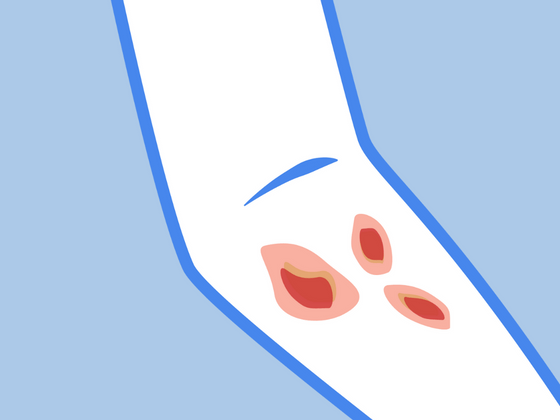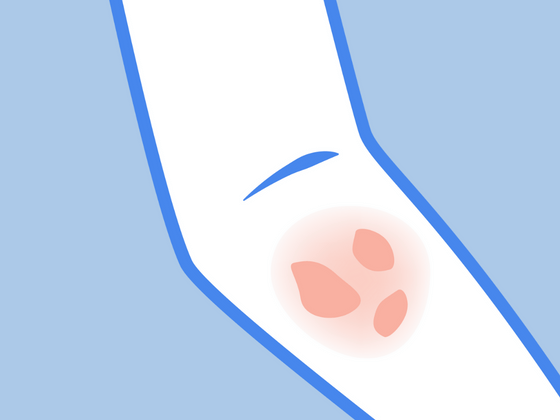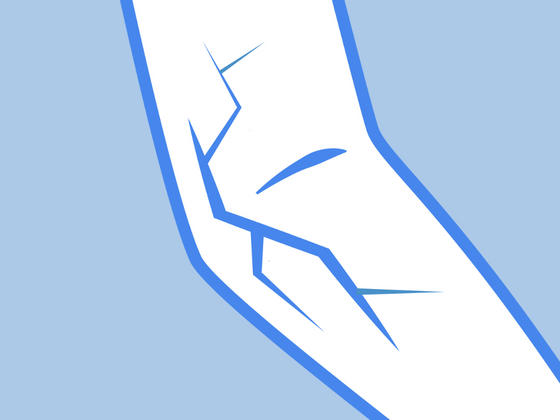Eczema and shingles are both conditions that cause the skin to become inflamed. They share other similarities too, such as being itchy and even painful. Because of their similar rash-like appearance, many people struggle to tell them apart. It’s important to be able to tell the difference between eczema and shingles because they have different underlying causes and require different treatments, including specialized eczema cream. Read on to learn more about eczema vs shingles.
Please keep in mind that although what we discuss in this post can relieve eczema, we are in no way medical professionals. If you’re experiencing severe eczema symptoms like an infection, it is best to seek medical advice immediately.
Understanding Eczema
Eczema is a common skin condition, affecting as many as 31.6 million people in the United States alone. It’s caused by a damaged skin barrier that has trouble retaining moisture. This leads to dryness and the subsequent itchiness. Although there isn’t one clear cause of eczema, it’s believed to be linked to a combination of genetic and environmental factors. Common triggers include pet fur, pollen, certain foods, stress, sweat, certain fabrics, and harsh ingredients found in skincare or household products like regular laundry detergent, which is why using detergent for sensitive skin is important. Prime symptoms of eczema include a red rash, extremely dry skin, swelling, peeling skin, and in some cases, fluid-filled bumps.
Understanding Shingles
Shingles is a disease that comes from the same virus that causes chickenpox. Although anyone can get shingles, it tends to affect people who are under extreme stress, dealing with an illness, or who have a weakened immune system. Factors that can compromise the immune system and trigger shingles include extremely cold weather, too much sun, age, emotional stress, having a cold, cancer, and the use of certain medications.
Early symptoms of shingles include having a headache, upset stomach, chills, and a fever. A shingles rash is usually limited to one side of the body, starting out as itchy and pink. Small blisters may form on top of the rash. Although the rash can develop anywhere on the body, it often affects the head, trunk, and face.
The Difference between Eczema and Shingles
One of the key differences between the two skin conditions is that shingles is associated with tingling nerve pain. A shingles rash also typically affects only one side of the body while eczema can affect both sides.
Shingles is also associated with fever, headache, sensitivity to light, and fatigue while eczema is not. Finally, as shingles is caused by a virus, it is contagious to those who are not immune to it while eczema is not contagious.
Treating Itchy Skin Naturally
If you have shingles, your doctor can prescribe antiviral medication or pain medication. But to help ease itchy symptoms of both shingles and eczema, here are some recommendations:
Moisturize
Keep your itchy, red rash well hydrated by applying this Hot Skin Soother. It’s perfect for relieving irritation in skin folds, armpits, groin area, and elbow and knee creases. Made with certified safe herbs, it’s a gentle choice for soothing red or angry looking skin.
Try Wet Wrap Therapy
Wet wrap therapy is an easy at-home treatment that involves applying a natural cream and covering up with a damp and dry layer of clothing. The damp layer allows the moisture to better permeate the skin which boosts the effectiveness. We recommend using this Nourish + Hydrate Manuka Balm because it’s great for applying anywhere on the body from head to toe. These Remedywear™ bandages work great as part of your wet wrap therapy treatment.
Take a Gentle Bath
Gently cleanse and calm your skin with eczema soap like Emily Skin Soothers – Soap for Eczema with Chinese Herbs. Originally created by an acupuncturist for his own infant daughter, this bar is packed with moisturizing, soothing herbs that support the skin’s natural barrier, without stripping away protective oils. It’s ideal for dry, sensitive skin types, including those with eczema, psoriasis, or seborrheic dermatitis. You can even use it as a gentle shampoo for dandruff or cradle cap (note: it’s not tear-free).
References:
https://www.healthline.com/health/shingles-vs-ecze...
https://www.everydayhealth.com/pictures/shingles-other-skin-conditions/








